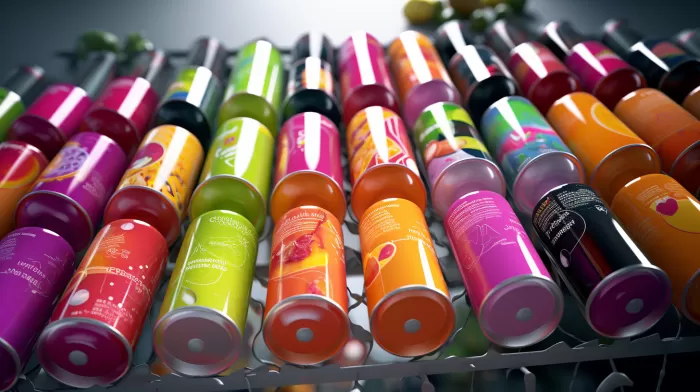Exercisers often turn to replenishment drinks in hopes of gaining an extra edge to their workout. While it’s true some energy drinks can improve sports performance, they also come with a series of downsides that could trip up your efforts to stay healthy and fit. Let’s take a look at the research and find out what these drinks can do to your body, both good and bad.
The Science Behind Energy Drinks
A four-year study conducted at Camilo José Cela University in Spain analyzed the ingredients and effects of energy drinks. The research included athletes from various sports, such as soccer, swimming, rock climbing, basketball, rugby, tennis, hockey, and volleyball.
Results showed that energy drinks indeed improved sports performance by up to 7 percent. Researcher Juan Del Coso Garrigós highlighted that the athletes who consumed the energy drinks “ran further in team competitions, especially at higher intensities, which is related to sports performance.”
Other positive effects include increased jump height for basketball players, muscle force and power for climbers and trained individuals, swimming speed for sprinter swimmers, hit force and accuracy for volleyball players, and the number of points scored in tennis.
The Dark Side of Energy Drinks
Despite these impressive results, energy drinks also come with a series of drawbacks. Athletes who consumed these beverages reported increased rates of insomnia, nervousness, and overstimulation for hours after their workout had ended.
The main culprit behind these side effects is caffeine. As the body takes a long time to clear caffeine, it can cause sleep disorders and excessive nervousness. It’s worth noting that the Spanish scientists found that no other ingredients present in the drinks affected athletic performance.
Alternatives to Energy Drinks
Considering the side effects associated with energy drinks, it’s crucial to seek out healthier alternatives to aid in workout performance and recovery. The following options can help you reach your fitness goals without jeopardizing your well-being:
- Water: Staying properly hydrated is essential for optimal athletic performance. According to a study published in Sports Medicine, even mild dehydration can hinder performance and increase fatigue. Make sure to drink water before, during, and after your workout to stay hydrated.
-
Sports drinks: These beverages, like Gatorade and Powerade, are specially formulated to replace electrolytes lost during sweat and physical exertion. They often contain less caffeine than energy drinks, making them a safer option for prolonged exercise. The American College of Sports Medicine recommends consuming sports drinks when exercising for more than 60 minutes.
-
Coconut water: This natural source of electrolytes and essential nutrients can help you stay hydrated and replenish vital minerals lost during exercise. A study published in the Journal of the International Society of Sports Nutrition found that coconut water was as effective as a sports drink in preventing exercise-induced dehydration.
-
Green tea: Packed with antioxidants and a moderate amount of caffeine, green tea is known for its numerous health benefits, including improved athletic performance. A study published in the American Journal of Physiology found that green tea extract improved endurance capacity and increased fat oxidation during moderate-intensity exercise.
-
Beet juice: This unconventional option provides a natural source of nitrates that can enhance athletic performance. Research published in the Journal of the Academy of Nutrition and Dietetics showed that beet juice supplementation improved performance in recreational athletes.
The Bottom Line
While energy drinks can temporarily boost athletic performance, they also come with a series of side effects and risks. It’s essential to weigh the pros and cons before incorporating these beverages into your workout routine. Opt for healthier alternatives, like water, sports drinks, coconut water, green tea, and beet juice, to promote well-being while staying fit and active.



